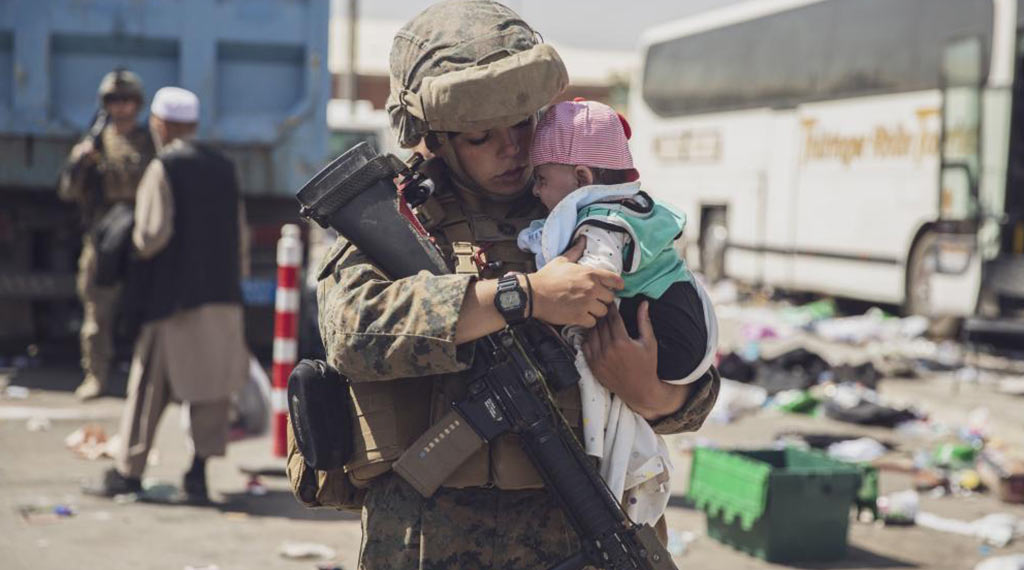
We may be doomed to repeat history, but we can still learn from it.
As the sad American surrender of Afghanistan lurches to a conclusion, consensus is growing that the country will revert to its previous status as a loosely connected series of tribal fiefdoms, nominally under the control of the radical Islamist Taliban in Kabul. Essentially, Afghanistan will become the same lawless no-man’s-land it was in the 1990s and provide an attractive target for a wide range of jihadist organizations that may or may not be colluding among themselves but that are all united in a stark and savage hatred of the United States.
As the bombing of the Hamid Karzai International Airport last Thursday so harshly demonstrated, America remains target No. 1 for the terrorists, and they will attack us in Afghanistan while we are there. It would logically follow that they will try to pursue us beyond what pass for borders in that part of the world after we retreat. America’s departure from Afghanistan is thus not likely to have the intended effect of ending the so-called “endless war” but may rather drag the Biden administration or its successors back into combat operations to prevent or avenge an attack. But even if we are doomed to repeat history in Afghanistan, we can still learn from it so we don’t come to this same sorry impasse again.
First and foremost: No more nation-building. The rapid military success of 2001 gave way to a two-decades-long American effort to build civil-society institutions, encourage democracy, and build a sustainable economy in Afghanistan that obscured the very real counterterrorism mission that remained. All these efforts were noble and in the abstract desirable, but we have to acknowledge that this massive investment of American aid has abysmally failed, and we have to stop. The perennial arguments that we have a responsibility to assist disadvantaged people in an effort to win hearts and minds and that we must do so in a disinterested fashion or the aid will not be accepted have prevented us from developing a strategic and targeted approach to foreign assistance. Such an approach should be clearly communicated to the American people as prioritizing U.S. interests and conditioned on the behavior of the recipients — and it is going to be desperately needed well beyond Afghanistan. In addition, the emerging proposition gaining traction in Washington that America should recognize the Taliban as the legitimate government of Afghanistan in order to maintain the flows of aid that will entice the Taliban to better behavior while supporting the Afghan people needs to be exposed as backward and nipped in the bud now. It may be that absent the U.S. economic safety net, the Taliban will become so desperate that they make fundamental concessions for relief, but the notion that we should give the aid now in the hopes that they might in the future is delusional, as is the hope that any aid will go to the Afghan people while the Taliban are in control.
Speaking of the Taliban: The enemy of my enemy is not my friend when he is a terrorist. The bungled Biden administration flight from Afghanistan has left us in the position that we have to coordinate with the Taliban to secure our withdrawal, as we no longer have the assets and personnel to do it ourselves. And the unsavory Islamic State affiliate from Khorasan Province (IS-K), which is theoretically opposed to the Taliban, makes them look good by comparison. But we need to look no farther afield than Iraq to see how poorly such a marriage of convenience can end. Shocked and flat-footed by the emergence of the Islamic State in Iraq and Syria (ISIS), the Obama administration tried to find common cause with the Iranian-sponsored Popular Mobilization Forces (PMF), who were also threatened by ISIS. While ISIS was duly vanquished, Tehran took advantage of the situation to entrench the PMF in the Iraqi forces to the extent that U.S. troops found themselves sharing bases with the Iranian proxies who had turned their attention to attacking us, while our support to the Iraqis paid their salaries. We cannot afford to make this mistake again in Afghanistan, and in the event that we have to take future military action there, we are going to have to do it ourselves with our actual partners and allies, not hide behind the fiction that the Taliban will help us.
The burden will now fall on the congressional committees whose responsibility it is to investigate such things to explore how poorly the post-9/11 mission in Afghanistan was ended due to catastrophically flawed decision-making and planning, and there will certainly be plenty of blame to go around. Accountability, especially for the 13 American heroes who gave their lives on August 26 to try to salvage something from this debacle, must be assigned. But at the same time, President Biden’s assurances that there is no longer a significant terrorist threat from Afghanistan, be it from IS-K, al-Qaeda, or the Taliban, is demonstrably false. We need to accept that given the manner of our departure, this is not going to be the end of U.S. involvement in Afghanistan and learn as much as we can from it so we can do it properly next time.
“The appearance of U.S. Department of Defense (DoD) visual information does not imply or constitute DoD endorsement.”
- When David Met Lisa - December 20, 2021
- Why the United States, not China, needs to shape Middle East policy - December 20, 2021
- Victoria Coates on the confusion in Natanz - December 10, 2021
